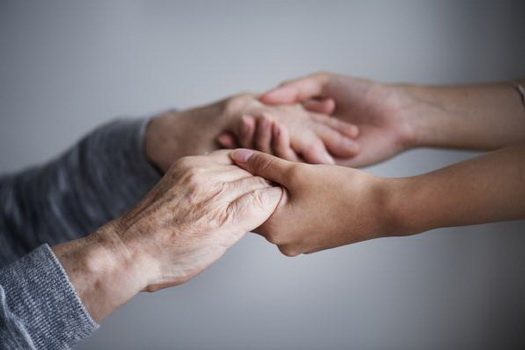
Weekly Dvar Torah: Kindness and Justice
In the weekly Torah portion of Vayera, we encounter stories of intense moral reflection, profound kindness, and the intricate balance between mercy and justice. Through Avraham’s actions and interactions with G-d, the Torah illustrates how he embodies and establishes the ethical foundation of the Jewish people. This portion reveals how Avraham’s commitment to kindness and righteousness forms a model that still resonates with us, as his behavior is marked by both boundless compassion and a strong sense of duty, even when the circumstances challenge these ideals.
The first story begins as G-d visits Avraham, who is recovering from circumcision—a profound act of devotion at his advanced age of ninety-nine. In this intimate moment with G-d, Avraham notices three wanderers in the distance. He does not hesitate: he leaves G-d’s presence to welcome these strangers, an unprecedented act of hospitality that showcases Avraham’s deep love for others. He runs to greet them, preparing a meal to nourish them and offering them respite from the desert heat. This act of kindness is not just a demonstration of Avraham’s character but a model for his descendants on the value of Chesed—kindness—even in the most personal and sacred of moments.
Avraham’s behavior illustrates a central tenet of Judaism: sometimes, attending to human needs and uplifting others surpasses even direct communion with the Divine. G-d’s response implies His approval, subtly suggesting that true devotion to Him includes selfless service to others.
The second story introduces G-d’s response to the rampant evil in the cities of Sodom and Gomorrah. The cities’ cruelty is notorious—so vicious that they brutally punish anyone who shows compassion. G-d decides to “descend” to assess firsthand if the severity of the reports matches reality. This descent represents a shift from Divine omniscience to Divine empathy, demonstrating a willingness to understand the human condition before rendering judgment.
G-d’s decision to “descend” can be understood as His attempt to move beyond infinite compassion to a realm where justice and accountability play a role. By lowering Himself, He sees with earthly perspective, free from His overwhelming love for creation. Here, G-d shows us that to enact true justice, even He must balance His love with a grounded understanding of human actions. The process of descent reminds us that judgment requires proximity to the human experience and a thorough understanding of each situation.
G-d then consults Avraham, affirming His love for him as one who will “pass on the tradition of righteousness and justice to his children.” By involving Avraham in this decision, G-d demonstrates the value He places on Avraham’s ethical perspective. In response, Avraham passionately advocates for the people of Sodom and Gomorrah. Though fully aware of their cruel and immoral ways, he negotiates with G-d to spare the cities if righteous individuals can be found among them. Avraham’s insistence on seeking even a fraction of goodness in the midst of overwhelming darkness is an enduring lesson in compassion.
This interaction underlines the significance of Avraham’s influence: he represents the archetype of Chesed (loving-kindness), yet he knows that kindness cannot always be blind. Through his entreaties, he illustrates the Jewish ideal of compassion combined with a commitment to justice. When Avraham exhausts all possible defenses, even he concedes that punishment must come when no righteousness remains. Only after exploring every avenue of mercy can justice be effectively, and even compassionately, rendered.
The lesson is profound: even in dire circumstances, the first response should be mercy. But when mercy no longer serves the greater good, justice must proceed with clarity and resolve. Avraham’s approach to Sodom and Gomorrah teaches that kindness should be tempered with discernment.
Later in the portion, Avraham’s two sons, Yitzchak and Yishmael, illustrate two different approaches to faith. Yishmael, circumcised at thirteen, takes pride in his conscious choice to enter a covenant with G-d, believing that his age and understanding make his commitment more valuable. Yitzchak, circumcised at eight days old, offers a counterpoint: his covenant with G-d is less about his own choice and more about a lifelong, innate connection beyond logic or maturity. This distinction reflects two paths in serving G-d: Yishmael’s self-directed choice versus Yitzchak’s acceptance of G-d’s will as inherent and unchangeable.
The Jewish tradition ultimately upholds Yitzchak’s approach as the model for future generations, emphasizing that the bond with G-d is not dependent on our own understanding but is instead an eternal connection established by G-d’s desire for relationship. This unbreakable covenant, renewed each time a Jewish child is circumcised, signifies an infinite bond that transcends human logic. It symbolizes the unique nature of the Jewish people’s connection with G-d—a connection that is constant, irrespective of their actions or understanding.
The overarching lesson of Vayera is that loving-kindness and justice are not mutually exclusive; rather, they must exist in harmony. Avraham’s example teaches us that compassion should be our instinctive reaction, yet it must be balanced with discernment and responsibility. G-d’s consultation with Avraham models how Divine compassion can reach beyond our understanding, offering us a standard of empathy even toward those we struggle to love. At the same time, justice, when truly warranted, reinforces this mercy and upholds the dignity of kindness itself.
The stories of Avraham, his descendants, and his interactions with G-d encourage us to embody this balance in our own lives. Whether welcoming a stranger, praying for the undeserving, or reigniting our faith in times of spiritual emptiness, we are reminded of the boundless potential within us to connect with the Divine. In every act of kindness, and in every instance of righteous judgment, we honor Avraham’s legacy and affirm our unique covenant with G-d. Through this legacy, we continue to illuminate the world with a blend of compassion and justice, fulfilling the mission bestowed upon us by our ancestors.
Have a Kind and Just Shabbos,
Gut Shabbos
Yosef Katzman










